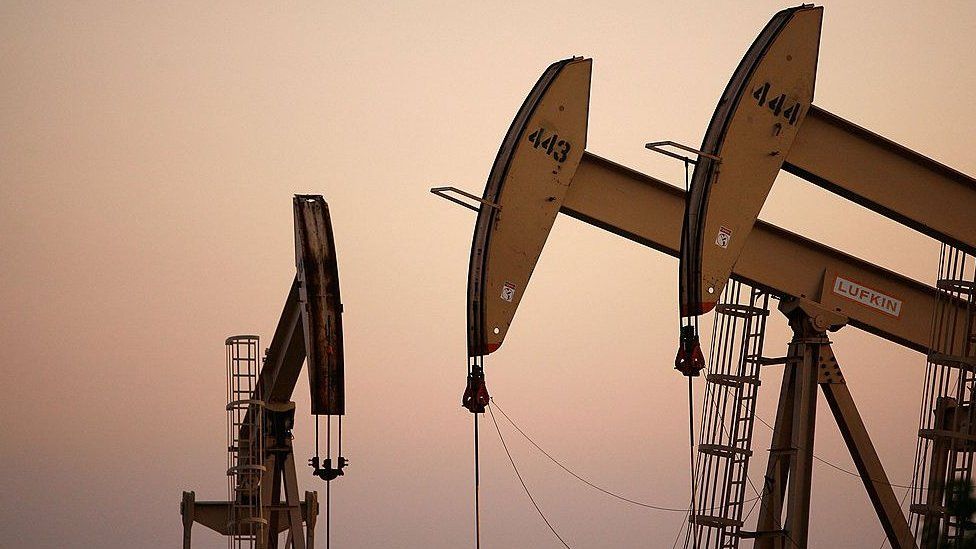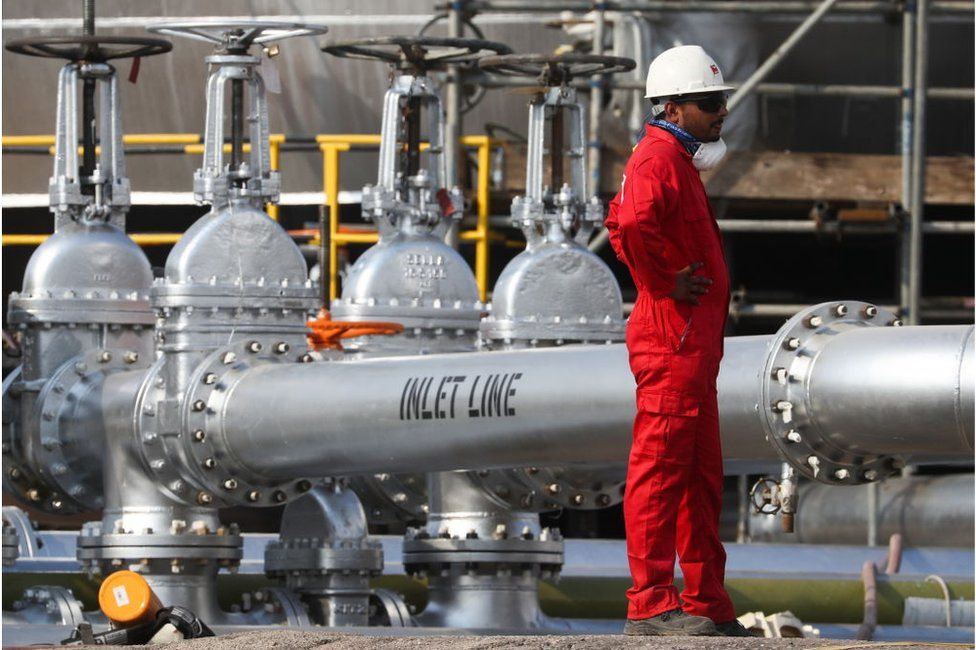
A new report says that oil and gas producing countries face a multi-trillion-dollar hole in their government revenue.
The report from the think-tank Carbon Tracker looks at the financial impact as the world cuts back on fossil fuels.
It says some countries could lose at least 40% of total government revenue.
It estimates the cumulative total revenue loss for all oil-producing countries by 2040 will be $13 trillion (in 2020 dollars).
That is as efforts to contain the rise in global temperatures drive the decarbonisation of energy supplies.
Carbon Tracker describes its report as a wake-up call to oil producing countries and international policymakers. It says they have planned on the basis that demand for oil will increase until 2040.
But the agency warns that demand will have to fall to meet climate targets, and oil prices will be lower than oil producers and the industry currently expect.
The report looks at what would happen to government revenues if the increase in global temperature is limited to 1.65C.
The $13 trillion figure for lost revenue is compared with what it calls "business as usual" expectations of continued growth. It includes countries whose economies are not dominated by oil - such as the UK, the US, India and China.
The main focus of the report, however, is a group for which the loss of oil income will be much more challenging, 40 countries it calls "petrostates".

The predicted damage to government finances in these nations is stark; an average loss of 46% of oil and gas revenue.
The dependence on oil and gas revenue is very marked for some countries - more than 80% for Iraq and Equatorial Guinea. For another seven including Saudi Arabia the figure is more than 60%.
Some countries face very large losses of total revenue. For seven countries, including Angola and Azerbaijan the predicted loss is at least 40%. For another 12, including Saudi Arabia, Nigeria and Algeria it is in the range of 20% to 40%.
For some in the Middle East and North Africa, the effect is moderated somewhat because their low production costs would give them a more prominent role in global oil and gas supply.
There is also a concern about what the report calls emerging petrostates. What they have to confront is a loss of potential revenue from oilfields where development is planned in the coming years. Ghana, Uganda and Guyana are among the countries facing this risk.
'Diversification'
Some of the countries facing severe losses - from existing or potential oil and gas production - are among the poorest.
The report says diversification - of government revenue and national economies - is an urgent task. That will need to be tailored to the needs of each individual country but there are some steps it suggests will be of widespread use.
These include investing in education and improving the quality of government and the climate for business. Capital that is not invested in oil and gas can instead be used to invest in industries that are more resilient to the energy transition.
The report also says there is a strong case for the rest of the world to support this transition. It says there are moral reasons to do so as many of the countries concerned are so poor.
It would help get better climate outcomes. It could also help address the risk of petrostates becoming less stable. They could see social unrest as spending is cut or underfunded security services struggling to contain existing threats.
"Oil" - Google News
February 11, 2021 at 07:07AM
https://ift.tt/3d8Xdl8
Shift to green energy 'could cost oil states $13 trillion' by 2040 - BBC News
"Oil" - Google News
https://ift.tt/2SukWkJ
https://ift.tt/3fcD5NP
Bagikan Berita Ini















0 Response to "Shift to green energy 'could cost oil states $13 trillion' by 2040 - BBC News"
Post a Comment